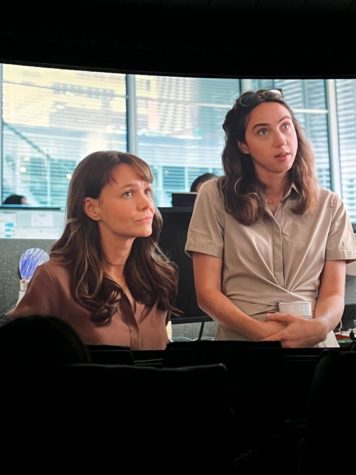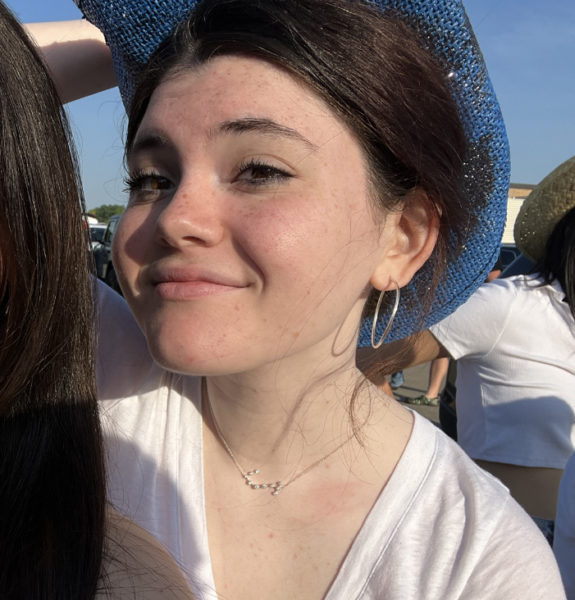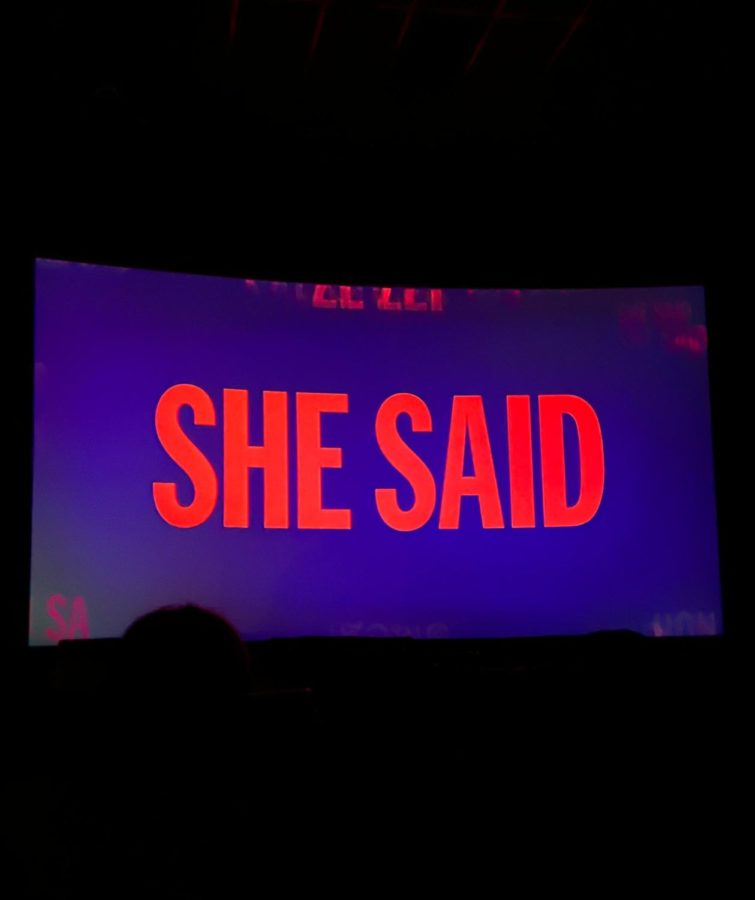“She Said” reestablishes focus on survivors of abuse and the prevention of its occurence
Released on Friday, Nov. 18, “She Said” depicts Jodi Kantor and Megan Twohey’s story exposing the abuse Harvey Weinstein inflicted upon women in the film industry.
On Friday, Nov. 18, Maria Schrader’s “She Said” was released to select theaters. The film follows Jodi Kantor (Zoe Kazan) and Megan Twohey (Carey Mulligan), reporters for the New York Times, in the writing of their exposé detailing Harvey Weinstein’s, famed producer, sexual harassment and abuse inflicted upon actresses and employees of Miramax, Weinstein’s entertainment company.
Being her fourth directorial role, Schrader’s maturity and respect for the survivors’ stories were necessary for a film of this caliber. Following the publishing of Kantor and Twohey’s article, the #MeToo movement empowered people everywhere to tell their stories and to call out those who abused them. By excluding Weinstein’s face, with only his back appearing in a shot focused on Twohey, Schrader preserved the focus to continue to be on the survivors rather than the assaulters.
“It is the first step towards free speech in the arts,” said Joyce Wang, sophomore.
Additionally, she took a documentarian approach, featuring Ashley Judd and Gwyneth Paltrow as themselves. Though only Paltrow’s voice is featured and Judd’s screen time is limited, their roles aid in the aforementioned goal of preventing the misfocus and glamorization of their stories. Other survivors, including Zelda Perkins (Samantha Morton), Rowena Chiu (Angela Yeoh), Laura Madden (Jennifer Ehle), Katherine Kendall and Sarah Ann Masse, offered their input to the script with Kendall playing an executive who meets with Kantor to help her investigation and Masse playing a New York Times journalist.
“I think documentaries are amazing to watch because they are based on history and research,” said Helena Tragas, junior.
The film begins with two storylines: a young Madden taking a job in the film industry and Twohey investigating then-presidential candidate Donald Trump. Madden has two shots, one of her approaching a film crew with a smile plastered on her face, and another of her running through the street with tears streaming down her face. This is the first glimpse into the trauma Weinstein’s survivors faced. Effective to say the least.

Similar to Weinstein, Trump had been accused of sexual harassment and abuse of women who, like the actresses and employees of Miramax, did not have much power in their respective industries. Twohey, pregnant nevertheless, received threats of abuse and death from men who did not believe Trump’s accusers and harassment from Trump himself. She still published the article.
“It is unfortunate that people may not take it seriously as shown by the treatment of [Twohey] for her Trump article,” said Ren Pang, junior.
While Twohey’s experience in writing the exposé on Trump foreshadows what’s to come for both Twohey and Kantor, with Weinstein harassing them in a similar manner to Trump, Madden’s is what drives the story. She is both the first and last of the survivors to have her story told, being the first and last name we hear. Though initially hesitant in talking to Kantor and having her name published in the article, Madden eventually believes that she would be doing wrong by her daughters in not doing either. This is seemingly one of the goals of the film: providing a better, safer working environment for a new generation of women.
Though on screen together for a limited amount of time, Twohey and Kantor’s ability to work off of each other’s ambition and perseverance, with a little help from Rebecca Corbett (Patricia Clarkson), their editor, is a key focal point in this film. All three spent every waking hour interviewing, writing, editing and doing it all over again, with Twohey and Kantor spending less time with their daughters.
When written wrong, the sentiment of Twohey and Kantor spending less time at home than at work could very easily be turned into misogynistic rhetoric on how women should resort to a “traditional” role, but the film’s writers were able to contribute this to their goal of creating a better world for the next generation of women with Twohey experiencing motherhood for the first time with her infant daughter and Kantor’s eldest daughter explaining she knows what Kantor is writing about and that her classmates use the word “rape” colloquially. Both indicate a clear motive, similar to that of Madden’s, in wanting to protect their own daughters from men like Weinstein and Trump.
Based on Twohey and Kantor’s book by the same name, “She Said” is a powerful retelling of their story writing and publishing one of the most impactful pieces of journalism the New York Times, or any publication for that matter, has ever released. More than that, it is the story of them encouraging anyone who has been abused or harassed to tell their story as every last one of them deserves to be listened to and respected.
“She Said” is playing in select theaters now.

Clara Pappas, senior, is excited to return to Devils’ Advocate as Editor-in-Chief this year. At school, she is a member of Radio Club and Link Crew....

Simrah Qasim, senior, is excited to be returning to devil's advocate. She loves listening to music, writing, and playing the piano. Along with Devil’s...












